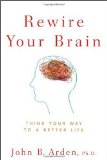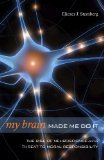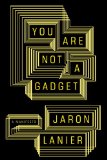Dao of Rewiring Your Zombies (and Philosophy) – 3 new books
March 20, 2010
The post title’s a mashup of three new books: The Dao of Neuroscience, Rewire Your Brain: Think Your Way to a Better Life, plus Zombies, Vampires and Philosophy.
The Dao of Neuroscience: Combining Eastern and Western Principles for Optimal Therapeutic Change by C. Alexander Simpkins and Annellen M. Simpkins (W.W. Norton, 2010).
Product description from the publisher:
Combining new scientific paradigms with ancient wisdom.
Neuroscientists have made huge advances in our understanding of the brain, and yet as scientists learn more, paradoxes arise. How does the brain—a material substance—relate to and produce nonmaterial thoughts and emotions? What explains the research showing that non-rational, unconscious experiencing can sometimes be more accurate than deliberate, conscious thought? The resolution of these paradoxes has important implications for all the helping fields, suggesting new approaches to mind–brain–body change.
By weaving together Eastern traditions (including Yoga, Buddhism, Zen, and Daoism) and Western science, new understandings previously not considered emerge. The Dao of Neuroscience is an insightful introduction to these traditions which sheds new light on the relationship between the mind and the brain. Dao is an ancient Eastern method, a Way or Path for exploring and learning. From the Eastern perspective, everything has its Dao, its Way, even the brain. As we learn the Dao of neuroscience, we come to understand the brain’s most optimal ways of functioning and how to facilitate its natural processes toward health, happiness, and fulfillment.
Rewire Your Brain: Think Your Way to a Better Life by
John B. Arden (Wiley, 2010).
Product description from the publisher:
How to rewire your brain to improve virtually every aspect of your life-based on the latest research in neuroscience and psychology on neuroplasticity and evidence-based practices
Not long ago, it was thought that the brain you were born with was the brain you would die with, and that the brain cells you had at birth were the most you would ever possess. Your brain was thought to be “hardwired” to function in predetermined ways. It turns out that’s not true. Your brain is not hardwired, it’s “softwired” by experience. This book shows you how you can rewire parts of the brain to feel more positive about your life, remain calm during stressful times, and improve your social relationships. Written by a leader in the field of Brain-Based Therapy, it teaches you how to activate the parts of your brain that have been underactivated and calm down those areas that have been hyperactivated so that you feel positive about your life and remain calm during stressful times. You will also learn to improve your memory, boost your mood, have better relationships, and get a good night sleep.
* Reveals how cutting-edge developments in neuroscience, and evidence-based practices can be used to improve your everyday life
* Other titles by Dr. Arden include: Brain-Based Therapy-Adult, Brain-Based Therapy-Child, Improving Your Memory For Dummies and Heal Your Anxiety Workbook
* Dr. Arden is a leader in integrating the new developments in neuroscience with psychotherapy and Director of Training in Mental Health for Kaiser Permanente for the Northern California RegionExplaining exciting new developments in neuroscience and their applications to daily living, Rewire Your Brain will guide you through the process of changing your brain so you can change your life and be free of self-imposed limitations.
Zombies, Vampires, and Philosophy (Popular Culture and Philosophy) ed. by Richard Greene and K. Silem Mohammad (Open Culture, 2010)
Product description from the publisher:
Since 1968’s Night of the Living Dead, zombie culture has steadily limped and clawed its way into the center of popular culture. Today, zombies and vampires have taken over TV shows, comic books, cartoons, video games, and movies. Zombies, Vampires, and Philosophy drags the theories of famous philosophers like Socrates and Descartes into the territory of the undead, exploring questions like: Why do vampires and vegetarians share a similar worldview? Why is understanding zombies the key to health care reform? And what does “healthy in mind and body” mean for vampires and zombies? Answers to these questions and more await readers brave enough to make this fun, philosophical foray into the undead….
This is an expanded and re-titled edition of Open Court’s The Undead and Philosophy: Chicken Soup for the Soulless. It includes two new chapters and a new introduction.
Comments (0) - cognitive science,consciousness,culture,mind,new books










